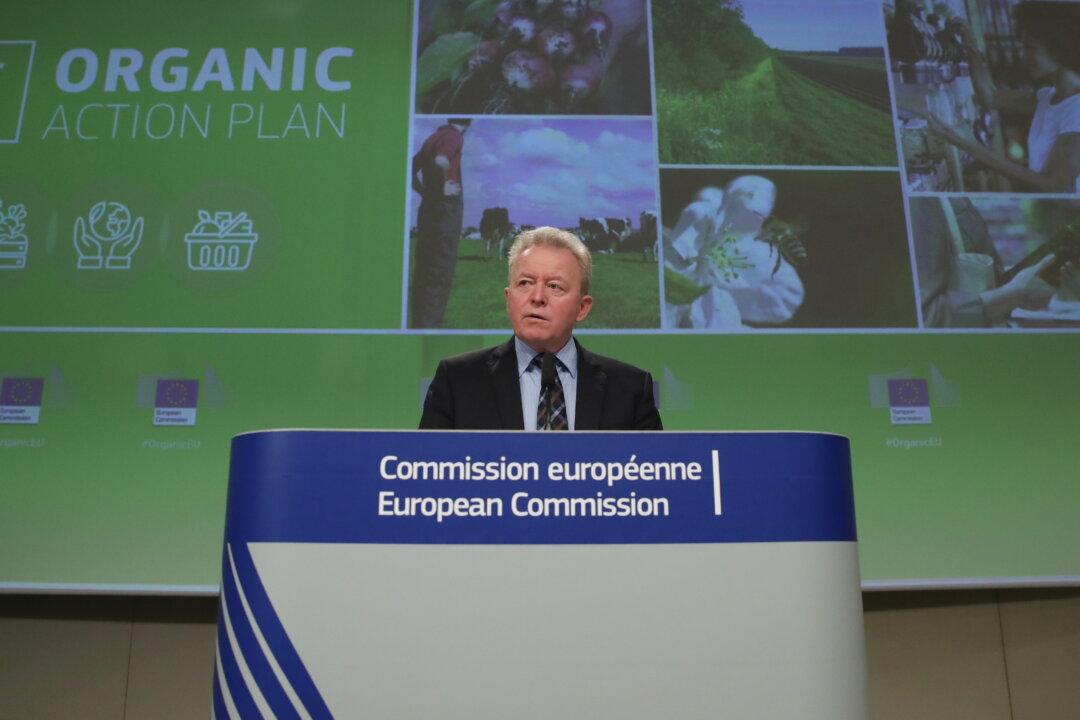BRUSSELS—The European Commission on Thursday said it would expand financial and policy support to help achieve a goal for a quarter of Europe’s farmland to be organic by 2030.
Organic farmland, which restricts chemical pesticides, synthetic fertilizers, and genetically modified organisms, has expanded by more than 60 percent over the last decade in the European Union, to nearly 9 percent of the bloc’s agricultural area.





